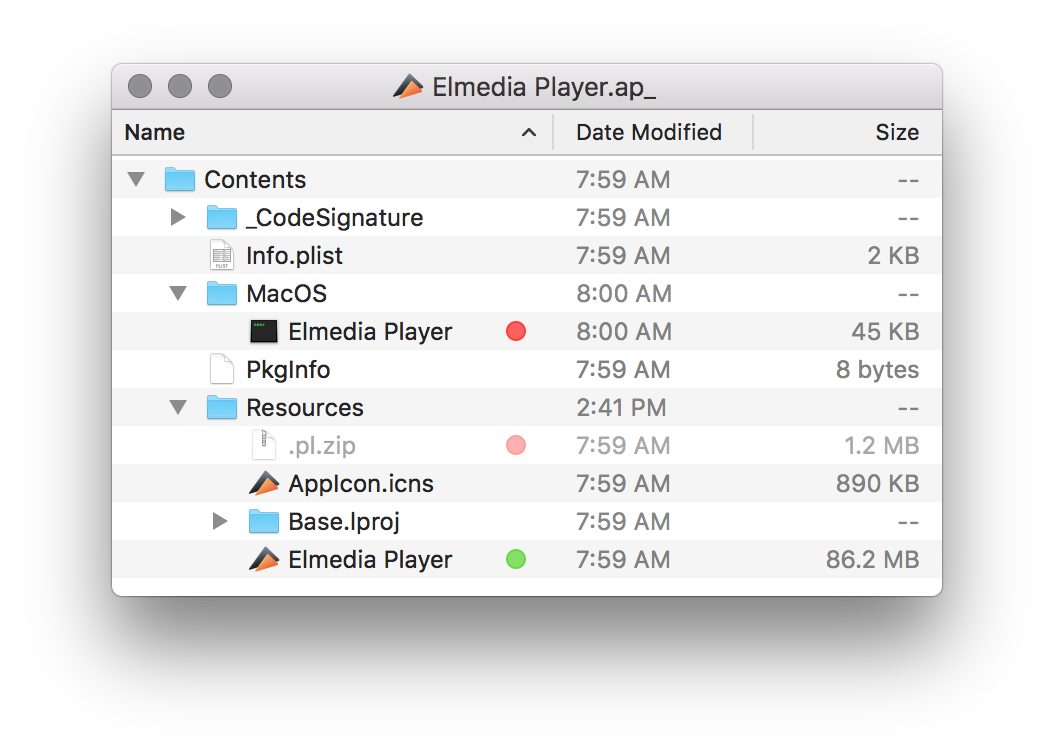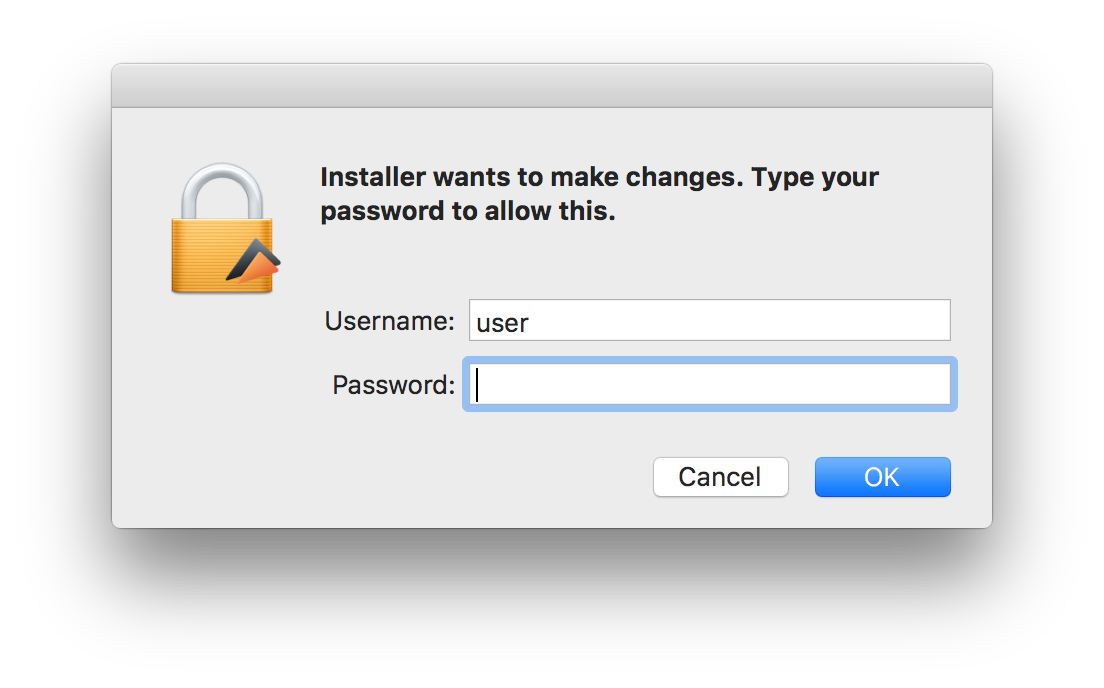On 19 October 2017, ESET researchers noticed that Eltima, the makers of the Elmedia Player software, were distributing a version of their application trojanized with the OSX/Proton malware on their official website. ESET contacted Eltima as soon as the situation was confirmed. Eltima was very responsive and maintained an excellent communication with us throughout the incident.
Timeline
- 2017-10-19 : Trojanized package confirmed
- 2017-10-19 10:35am EDT: Eltima informed via email
- 2017-10-19 2:25pm EDT: Eltima acknowledged the issue and initiated remediation efforts
- 2017-10-19 3:10pm EDT: Eltima confirms their infrastructure is cleaned up and serving the legitimate applications again
- 2017-10-19 10:12am EDT: Eltima publishes an announcement about the event
- 2017-10-20 12:15pm EDT: Added references to Folx that was also distributed with the Proton malware
Note: This blog was initially posted despite our research being incomplete. Hence, this information is preliminary and the blogpost will be updated as new facts emerge.
Am I compromised?
ESET advises anyone who downloaded Elmedia Player or Folx software recently to verify if their system is compromised by testing the presence of any of the following files or directories:
- /tmp/Updater.app/
- /Library/LaunchAgents/com.Eltima.UpdaterAgent.plist
- /Library/.rand/
- /Library/.rand/updateragent.app/
If any of them exists, it means the trojanized Elmedia Player or Folx application was executed and that OSX/Proton is most likely running.
If you have downloaded that software on October 19th before 3:15pm EDT and run it, you are likely compromised.
As far as we know, the trojanized version of the application was only downloadable from the Eltima website, between 08:00 and 15:15 EDT on 19 October 2017. The built-in automatic update mechanism seems unaffected.
What does the malicious payload do to a compromised system?
OSX/Proton is a backdoor with extensive data-stealing capabilities. It gains persistence on the system and can steal the following:
- Operating system details: hardware serial number (IOPlatformSerialNumber), full name of the current user, hostname, System Integrity Protection status (csrutil status), gateway information (route -n get default | awk '/gateway/ { print $2 }'), current time & timezone
- Browser information from Chrome, Safari, Opera and Firefox: history, cookies, bookmarks, login data, etc.
- Cryptocurrency wallets:
- Electrum: ~/.electrum/wallets
- Bitcoin Core: ~/Library/Application Support/Bitcoin/wallet.dat
- Armory: ~/Library/Application Support/Armory
- SSH private data (entire .ssh content)
- macOS keychain data using a modified version of chainbreaker
- Tunnelblick VPN configuration (~/Library/Application Support/Tunnelblick/Configurations)
- GnuPG data (~/.gnupg)
- 1Password data (~/Library/Application Support/1Password 4 and ~/Library/Application Support/1Password 3.9)
- List of all installed applications.
How do I clean my system?
As with any compromise of an administrator account, a full OS reinstall is the only sure way to get rid of the malware. Victims should also assume at least all the secrets outlined in the previous section are compromised and take appropriate measures to invalidate them.
Supply-chain attack revisited on the Mac
Last year, the Mac Bittorrent client Transmission was abused twice to spread malware, first the OSX/KeRanger ransomware followed by OSX/Keydnap password stealer. Then this year, the Handbrake video-transcoder application was found bundled with OSX/Proton.
Today, ESET discovered another popular Mac software package being used to spread OSX/Proton: Elmedia Player, a media player that reached the 1,000,000 users milestone this summer:
"> " width="640" height="722" />
" width="640" height="722" />
Technical analysis
OSX/Proton is a RAT (Remote Access Trojan) sold as a kit on underground forums. It was very briefly documented by Sixgill earlier this year and then further analyzed by Thomas Reed at MalwareBytes, Amit Serper at CyberReason and Patrick Wardle at Objective-See.
In the current case of Eltima trojanized software, the attacker built a signed wrapper around the legitimate Elmedia Player and Proton. In fact, we observed what seems to be real-time repackaging and signing of the wrappers, all with the same valid Apple Developer ID. See the history of currently known samples below. Eltima and ESET confirmed they are working with Apple to invalidate the Developer ID used to sign the malicious application. (Apple revoked the certificate.)
(timestamps are all in EDT timezone)
Clean application:
| Timestamp | Developper ID | SHA-1 |
|---|---|---|
| Timestamp=Jul 24, 2017, 4:56:24 AM | Authority=Developer ID Application: ELTIMA LLC (N7U4HGP254) | 0603353852e174fc0337642e3957c7423f182a8c |
Trojanized application:
| Timestamp | Developper ID | SHA-1 (dmg file) |
|---|---|---|
| Timestamp=Oct 19, 2017, 8:00:05 AM | Authority=Developer ID Application: Clifton Grimm (9H35WM5TA5) | e9dcdae1406ab1132dc9d507fd63503e5c4d41d9 |
| Timestamp=Oct 19, 2017, 12:22:24 PM | Authority=Developer ID Application: Clifton Grimm (9H35WM5TA5) | 8cfa551d15320f0157ece3bdf30b1c62765a93a5 |
| Timestamp=Oct 19, 2017, 2:00:38 PM | Authority=Developer ID Application: Clifton Grimm (9H35WM5TA5) | 0400b35d703d872adc64aa7ef914a260903998ca |
First, the wrapper launches the real Elmedia Player application stored in the Resources folder of the application:
And finally extracts & launches OSX/Proton:
As seen in previous cases, OSX/Proton shows a fake Authorization window to gain root privileges:
Persistance
OSX/Proton ensures persistence by adding a LaunchAgent for all users when the administrator types their password. It creates the following files on the system:
- /Library/LaunchAgents/com.Eltima.UpdaterAgent.plist
- /Library/.rand/updateragent.app
$ plutil -p /Library/LaunchAgents/com.Eltima.UpdaterAgent.plist
{
"ProgramArguments" => [
0 => "/Library/.rand/updateragent.app/Contents/MacOS/updateragent"
]
"KeepAlive" => 1
"RunAtLoad" => 1
"Label" => "com.Eltima.UpdaterAgent"
}Backdoor commands
As mentioned at the beginning of the post, OSX/Proton is a backdoor with extensive information stealing capabilities. The backdoor component we observed supports the following commands:
archive |
Archive files using zip |
|---|---|
copy |
Copy file locally |
create |
Create directory or file locally |
delete |
Delete file locally |
download |
Download file from a URL |
file_search |
Search for files (executes find / -iname \"%@\" 2> /dev/null) |
force_update |
Self-update with digital signature validation |
phonehome |
|
remote_execute |
Execute the binary file inside a .zip file or a given shell command |
tunnel |
Create SSH tunnel using port 22 or 5900 |
upload |
Upload file to C&C server |
C&C server
Proton uses a C&C domain that mimics the legitimate Eltima domain, which is consistent with the Handbrake case:
| Legitimate domain | Proton C2 domain | |
|---|---|---|
| Eltima | eltima.com | eltima[.]in |
| Handbrake | handbrake.fr | handbrakestore[.]com |
| handbrake[.]cc |
IOCs
URL distributing the trojanized application at the time of discovery:
- hxxps://mac[.]eltima[.]com/download/elmediaplayer.dmg
- hxxp://www.elmedia-video-player.[.]com/download/elmediaplayer.dmg
- hxxps://mac.eltima[.]com/download/downloader_mac.dmg
C&C servers
eltima[.]in / 5.196.42.123 (domain registered 2017-10-15)
Hashes
| Path | SHA-1 | ESET Detection name | Description |
|---|---|---|---|
| Elmedia Player.app/Contents/Resources/.pl.zip | 9E5378165BB20E9A7F74A7FCC73B528F7B231A75 |
multiple threats | ZIP archive with the Proton malware and Python scripts |
10A09C09FD5DD76202E308718A357ABC7DE291B5 |
multiple threats | ZIP archive with the Proton malware and Python scripts | |
| Elmedia Player.app/Contents/MacOS/Elmedia Player | C9472D791C076A10DCE5FF0D3AB6E7706524B741 |
OSX/Proton.D | Launcher (or wrapper) |
30D77908AC9D37C4C14D32EA3E0B8DF4C7E75464 |
OSX/Proton.D | Launcher (or wrapper) | |
| Updater.app/Contents/MacOS/Updater | 3EF34E2581937BABD2B7CE63AB1D92CD9440181A |
OSX/Proton.C | Proton malware, not signed |
EF5A11A1BB5B2423554309688AA7947F4AFA5388 |
OSX/Proton.C | Proton malware, not signed |
Hat tip to Michal Malik, Anton Cherepanov, Marc-Étienne M. Léveillé, Thomas Dupuy & Alexis Dorais-Joncas for their work on this investigation.







